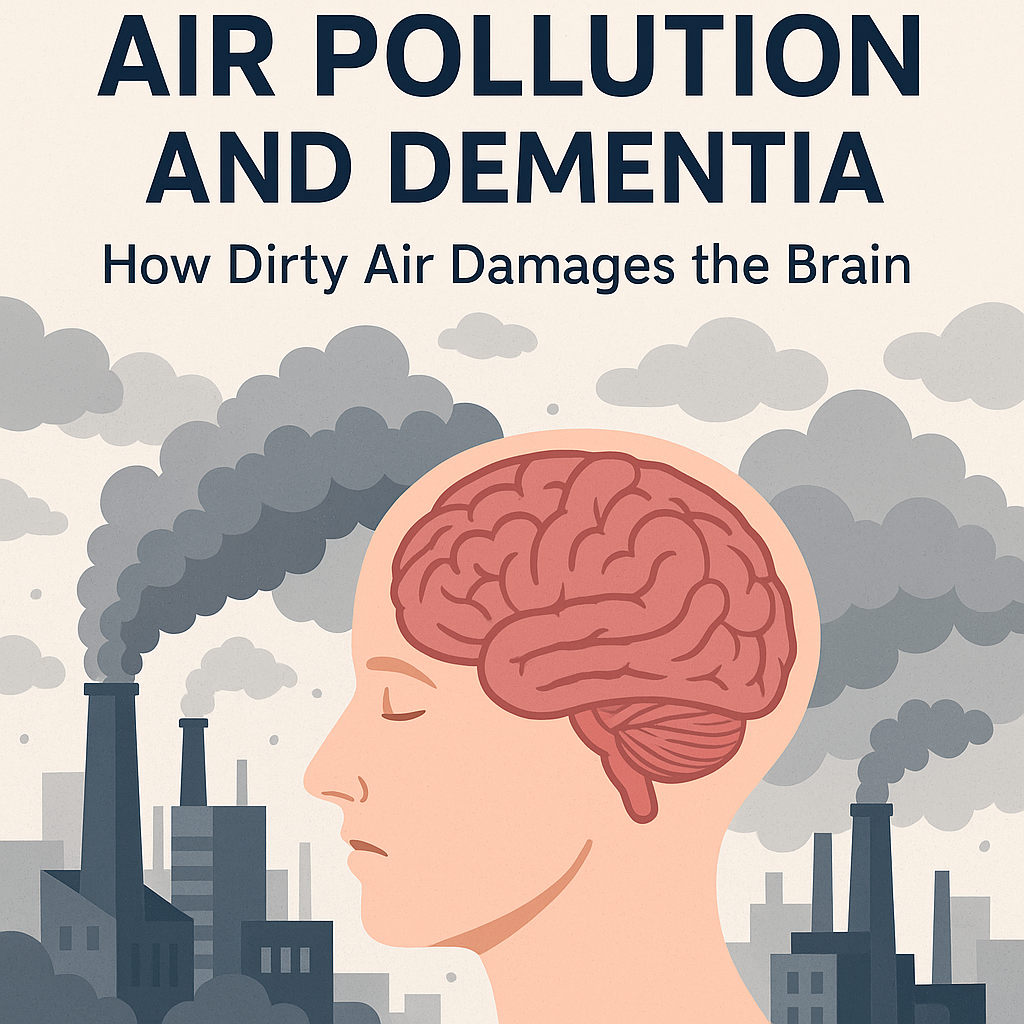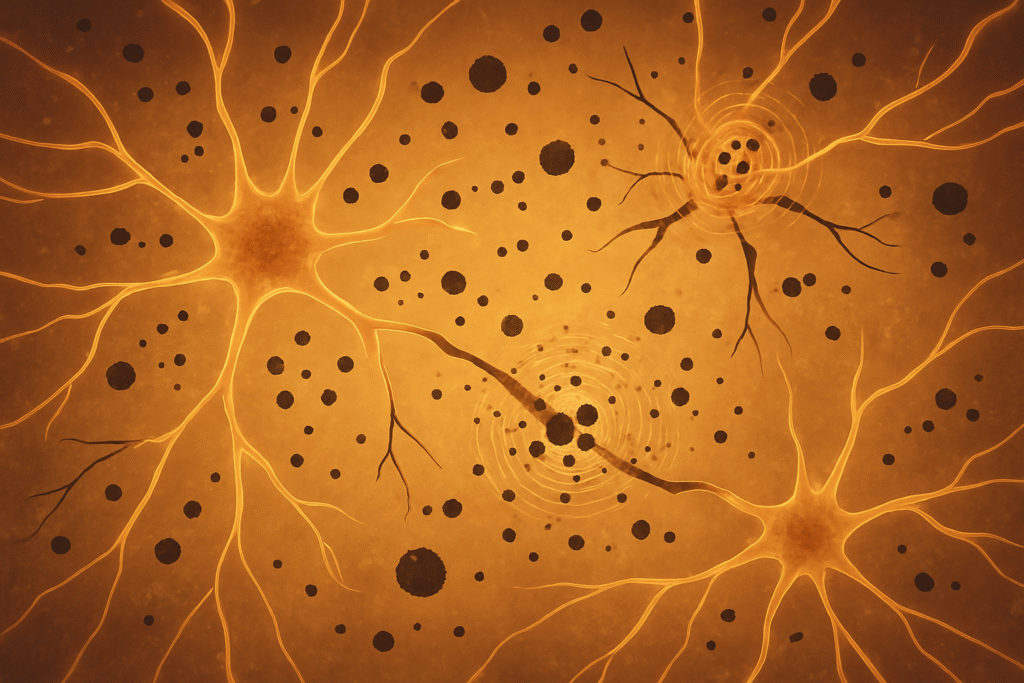
Air pollution and dementia are more connected than you think. Explore the science behind how dirty air may harm your brain — and steps to reduce your risk today.
Dementia is becoming one of the fastest-growing health challenges in the world. Today, 57 million people live with dementia globally. Experts predict that this number could triple to 153 million by 2050.
Most people know that dementia risk increases with age, genetics, poor diet, and low physical activity. But a new study from Cambridge University reveals another silent threat: air pollution.
This finding is critical because air quality is something we can change, and cleaner air could help prevent millions of dementia cases in the future.

The Landmark Study Linking Air Pollution to Dementia
Researchers conducted the largest study ever on air pollution and dementia, reviewing 51 studies and 29 million participants.
The results were clear: long-term exposure to polluted air significantly raises the risk of dementia.
The study identified three specific pollutants as the biggest dangers to brain health.
The Three Air Pollutants That Damage the Brain
1. PM2.5 – Tiny Particles, Big Danger
- PM2.5 means fine particulate matter smaller than 2.5 micrometers.
- Sources include car exhaust, factories, and wood burning.
- These tiny particles travel deep into the lungs and can enter the bloodstream and reach the brain.
- Every 10 μg/m³ increase in PM2.5 raises dementia risk by 17%.
2. Nitrogen Dioxide (NO2) – The Urban Hazard
- NO2 is a toxic gas from burning fossil fuels, especially car and truck exhaust.
- People in busy cities or near highways are at higher risk of memory problems and cognitive decline.
3. Soot – The Hidden Killer in the Air
- Soot, or black carbon, is part of PM2.5.
- It comes from vehicle exhaust, industrial smoke, and wood burning.
- Just 1 μg/m³ increase in soot raises dementia risk by 13%.

How Air Pollution Leads to Dementia
Scientists found that polluted air harms the brain in two major ways:
- Chronic Inflammation
- Pollutants trigger inflammation in the brain.
- Over time, this damages neurons and blood vessels, reducing brain function.
- Oxidative Stress
- Pollutants create free radicals that damage cells, proteins, and DNA.
- This accelerates brain aging and memory decline.
Public Health Impact and Urgent Action Needed
Air pollution is a modifiable risk factor for dementia. That means we can reduce the risk if we take action.
Dr. Isolde Radford from Alzheimer’s Research UK says:
“Air pollution is a major modifiable risk factor for dementia. Reducing it requires a bold, cross-government approach.”
However, this is not a problem individuals can solve alone. It requires:
- Stricter air quality regulations
- Cleaner transportation systems
- Urban planning that reduces traffic pollution
Communities Most at Risk from Polluted Air
Most data in the study came from white populations in high-income countries.
But marginalized and low-income communities often face:
- Higher pollution levels
- Less access to healthcare
- Greater overall health risks
This means the global impact may be even worse than we know.
Practical Tips to Protect Your Brain from Air Pollution
While governments act, you can reduce your exposure:
- Check air quality apps and stay indoors on high-pollution days
- Use indoor air purifiers to capture fine particles
- Avoid burning wood, coal, or trash near your home
- Support clean energy and public transportation policies
Small lifestyle changes can protect your memory and brain health.

Conclusion: Clean Air is Brain Protection
This landmark study shows that dirty air silently damages the brain, raising the risk of dementia.
Key takeaways:
- PM2.5, NO2, and soot are the most dangerous pollutants for the brain.
- Reducing pollution can prevent millions of future dementia cases.
- Clean air initiatives are urgent for both the environment and public health.
The air you breathe today could determine your memory tomorrow.
🌐 WHO – Air Pollution and Health
→ https://www.who.int/news-room/fact-sheets/detail/ambient-(outdoor)-air-quality-and-health
Disclaimer: This article is for educational purposes only and is not a substitute for professional medical advice, diagnosis, or treatment. Always consult a qualified healthcare provider with any questions you may have about your health or before making changes to your diet or lifestyle.
If you found these tips helpful, share this article with friends and family. For more science-backed health insights, explore our latest blogs on Nowspress.






2 thoughts on “Air Pollution and Dementia: Protect Your Brain Now”